The monthly newsletters are an amalgamation of musings and two poems (one by a published poet and one by me, as per a practice introduced to my master’s cohort by poet Alice Oswald). Sometimes I will alternate a poem for a song.
Please scroll down for upcoming course and event announcements.
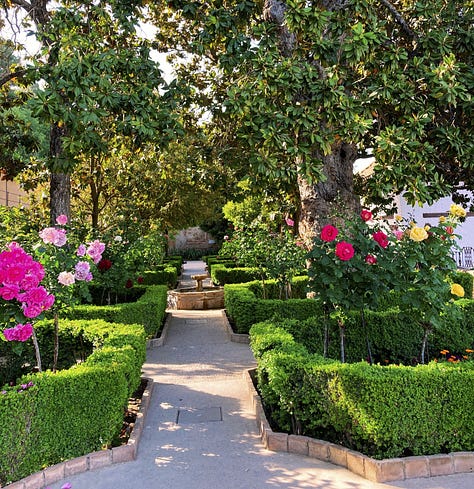
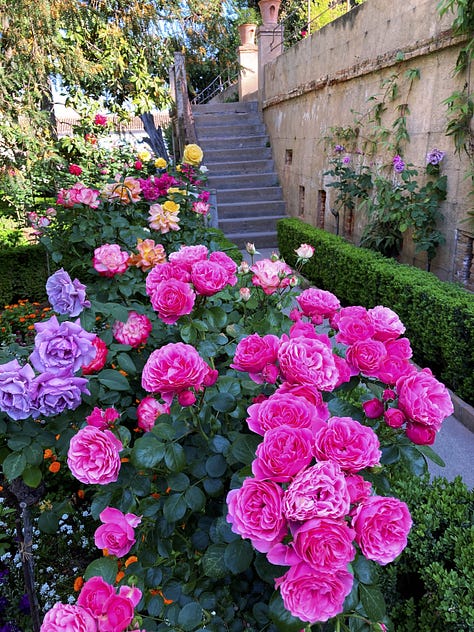
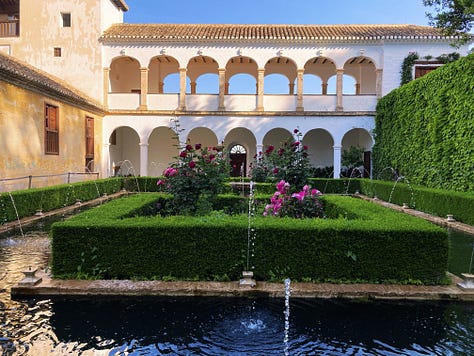
Listen via audio
My beloved spoke and said to me,
‘Arise, my darling, my beautiful one, come with me.
See! The winter is past; the rains are over and gone.
Flowers appear on the earth; the season of singing has come,
the cooing of doves is heard in our land.
The fig tree ripens its figs, and the vines are in blossom;
they give forth fragrance.
Arise, my love, my beautiful one, and come away.’
Song of Songs 2:10-16
After a particularly brutal winter, I have arrived to the bright mountains of Andalusia in southern Spain. And though it’s been three days, my eyes are still adjusting to the brightness, the feral cat in me still hesitant to leave the shelter of winter’s dreaming den.
Though I must say, this winter I shrivelled. Devon is glorious. But her winter is rough. She very almost drowned me. Perhaps she did. Perhaps that was the last layer of the Underworld I had to wade through. Psyche’s final task. And now I’m ringing out the wet cloth of my bones, bit by bit.
During the first Covid lockdown, when I was isolating in Cornwall for what ended up to be well-over a year, I had a dream that instructed me in a process that was called The Nine Doors, and that marked the beginning of my interest in gaining a deeper understanding of the importance of initiatory experience.
The doors appeared like a mandala; a spiralling circle; and a dance was being done at the center similar to that of the whirling Dervish. Each door was a gateway that held a gift and a particular teaching, and each had to be entered to access the next.
During the days that followed my dream, I discovered that the Eleusinian Mysteries of the cult of Demeter and Persephone were undertaken over a period of nine days, with each day representing a particular rite of passage.
I then came across Dante’s Inferno in my local library and found that his idea of Hell was divided into nine levels, what he called the nine circles of torment.
I understand his Inferno to be a Christianised version of the mythic Underworld of cultures like that of the Greeks and Mesopotamians. Ancient traditions the world over understood the importance of initiatory experience and rites of passage. The Dionysian Mysteries, for instance, held the practice of dismemberment in the Underworld at their very heart, knowing that there is no wine without the dismemberment of the vine.
In her descent into the Underworld to meet with her sister the queen, the Mesopotamian goddess Inanna had to pass through a series of gates. And she had to let go of a symbol of her power at each one so that, by the time she arrived to the queen, she was naked; with nothing left. Like Odysseus having to become a beggar to return home to Ithaca after his soul journey.
When describing the underground descent, Dante writes, ‘You will leave behind everything you love most dearly, and this is the arrow the bow of exile first lets fly.’
For alchemists, this self dissolution process signifies the eclipse of familial patterns of identity and meaning. Their notion of nigredo refers to an experience of disorientation in which they accessed a state they called a “black blacker than black.” And this state was cause for rejoicing: it expressed a conjunction with our illimitable potential in which could be conceived the golden embryo of the self. In other words, our truest self, our luminosity, could only be perceived after a sojourn in the dark.
This initiatory wisdom survived through the ages, with Catholic mystics like Saint John of the Cross teaching of the importance of disorientation in order to arrive at self-understanding. He wrote, ‘If a person wishes to be sure of the road they tread upon, they must close their eyes and walk in the dark.’
There is no compass for the Underworld. It is the Dark Woods where Snow White must lose herself before she eats from the apple of knowledge. It is the desert of the unknown where Jesus wrestles with the devil for forty days and forty nights before he can begin his ministry. It is the cave of transformation where honey ferments and becomes mead.
It is in the Underworld where the old self can be dismembered. Dismemberment is a process of dissolution which may lead to renewal and a return “to the bones”, the essentials of being (this is how I describe it in the monthly dismemberment ceremonies I facilitate remotely for folks around the world on the last Sunday of each month. See my website for more details).
But though this philosophy has survived within the inner teachings of cross-cultural traditions, and every individual must go through this process if they are to become their truest self, the modern world has no container for initiatory experience, and we translate our instinctual need for inner transformation into harmful behaviours of over-consumption, addiction and indulgence. We attempt to re-create rites of passage ourselves, but they become disjointed and self-sabotaging.
But whether we have healthy containers or not, we will be taken down. Hades will eventually find us picking wild flowers in the meadows of our naivety. And he spares no one.
My time in the Underworld has spanned five years now. Hades found me sitting under an apple tree in the Spring of 2018 and took me down. And I have been wrestling at each gate ever since.
It has been an alchemical half a decade. I lost a lover, I lost friends, I lost my home, I lost my spiritual teachers and, ultimately, I lost my self. I left a symbol of my power at each gate. And this winter, finally, I faced the queen; left with nothing; naked.
The last task in the myths is to face the queen of the Underworld, the sovereign within us, that immortal spark of divinity. And to dare to look at her straight on, full knowing that we cannot look at the gods without being blinded; full knowing that we will be dispatched into a deep dreaming, like the Sleeping Beauty or Snow White - both once tales of female initiation - to be woken only by the true Beloved. ‘Arise, my darling, my beautiful one, come away with me, See! The winter is past; the rains are over and gone.’ So muses the maiden about the words of her beloved in the Song of Songs.
So what do we do when we return from the Underworld? When there is no village awaiting us with a feast and brimming cups of fine wine? The world looks the same; but we are not. And when the outer world doesn’t reflect our inner one, it takes every ounce of our will to hold onto our new shape, without falling back into old patterns, old ways, old relationships that don’t really fit anymore. I had a great chat with my friend and colleague on my recent master’s program Gabriel Thomas Stevens on his podcast about this, which I will link below.
When we have completed our tasks in the Underworld, and met the divine spark of ourself, there is a force that pulls us back up. Since our conversation on the podcast back in the autumn, I have realised that it is this force that can support us in not falling back into our old ways. And this force is Beauty. It is Beauty that speaks to our hearts and beckons us to stay close to her, so that the gifts we retrieve from the Underworld have a chance to fully land in us. And our heart just knows where to go. Knows the garden where it can take root and be reborn.
Mine lead me to Spain, which is no surprise really as it is my homeland. And I’ve come here on a one-way ticket. There was a longing in my heart that got louder as Spring got closer. As though my soul knew that my heart had paid its dues over these last few years and it is now time to sit in the Garden. “Everyone deserves happiness,” my elderly friend Ken murmured in my ear as he kissed my cheek goodbye. Love is the resolution for la conscience malheureuse, as Henry Corbin would call it - the sadness of the psyche. The Islamic mystics believe that one who has made themselves capable of such love is able to do so by combining mystic knowledge ( معرفة - marrifa ) with vision ( شهود - shuhud ).
One would hope that after that degree of initiatory experience in the Underworld, along with a successful ascent, one would be bestowed with such a gift. After all, the stories always offer a gift to they who find their way back from the Underworld. But this is no guarantee. Some of us get stuck in the Underworld and never find our way back; some return but get caught again in the web of old patterns and never fully step into our true potential, our new shape; never fully become who we came here to be.
When Psyche completes the impossible tasks that Aphrodite sets up for her to prove her love for her son, Eros, her last task is to retrieve a box that Persephone gives her in the Underworld. It contains the beauty of Persephone, or the beauty of the Queen of the Underworld, a gift that, when Psyche finally finds her way out of the Underworld, sends her to sleep and into what I understand as the beginning of her Great Dreaming. It is only when she is in this state that her lover, Eros, after sitting at the feet of Grandfather Sobriety for 101 Days, finds her and brings her back to life. New life. And new love. The kind of love that is informed by the Underworld, the completion of impossible tasks, and Beauty. Hafez knew that a love like that lights up the sky.
This type of Beauty is meant for immortals, and the final ingredient in the story is the return of Psyche’s beloved, Eros. It is his return that brings her back to life. She becomes divine through Beauty and through Love. The Islamic Mystics may interpret this final stage in the initiatory journey as the divinization of the self.
Without retrieving the Beauty box, we may never fully complete the process. What are the things that bring beauty into our lives? And do we dare stay close to them? Do we dare sit in the Garden and wake up to the Beloved?
Psyche returns from the Underworld and wakes up in the arms of her Beloved, from the Grief House into the Garden.
And as I write this, nestled on my balcony deep in the mountains of Granada, a lilac dusk falls and swallows glide through its veil, stirring ripples in the sky so that jasmine petals carried by the Spring breeze get caught in my hair. The Beauty box is wide open, and I feel myself being dreamt anew; Eros circling above me with his great sweeping wings.
And I remember the poet Rilke now. He, too, found himself seeking refuge in the mountains of Andalusia as he emerged out of a deep existential and spiritual crisis; his own initiation, I suppose. And as he heard a group of children singing in the village convent one day, he wrote, ‘It is Spring again. The earth is like a child that knows poems by heart.’
Poetry & Song
This month I’d like to transmit some of the magics of the land of Andalusia and the medieval teachings of the Islamic mystics that once lived here. So next is a poem by Ibn ‘Arabi, an eleventh-century Arab Andalusian poet, scholar and mystic.
If you too are emerging out of an Underworld period, I recommend reading the poetry and prose of Sufi mystics and Islamic thinkers of this time and place, and whose philosophy I will be writing about in my next essay on the Imagination series.
A Garden Among the Flames O Marvel, a garden among the flames! My heart has become capable, of every form. It is a pasture for gazelles and a convent for monks. And a temple for idols, And the circulating-pilgrim’s Ka’ba And the tables of the Torah And the book of the Quran. My religion is the religion of love: whatever way Love’s caravan takes! So love is my religion and my faith.
—
Song
Inspired by being in Andalusia, I thought I would share a song I wrote some seven years ago now along with its music video. It’s inspired by the philosophy of medieval Islamic alchemists in Andalusian Spain and the notion that their alchemy was not a physical one, but a metaphysical one, a search for an inner transformation and divinization, as Henry Corbin would put it, of the self.
I hope it transmits to you some of the magics of this land, its Knowledge and its Heart.
LISTEN HERE.
And slipping another song in for some more honeyed transmissions from this land.
Announcements
—
Upcoming Online Courses
STARTING NEXT WEEK, APRIL 7
Gnosis | 1-Month Course | Fridays, 5 - 7pm UK
Rooted in the mythic notion of the polytheistic self and the idea that we are comprised of many parts - some human, some animal, some angel - this course is aimed at uncovering these secret selves and beginning to form a relationship with them. Each week, we will be exploring one of these aspects through myth, story, soul flight and dreamwork.
Upcoming Online Monthly Gatherings
April 20th - New Moon Embodiment | 5 - 6:30pm UK
April 30th - Dismemberment | 5 - 6:30pm UK

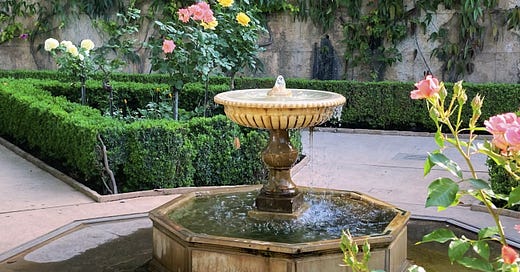



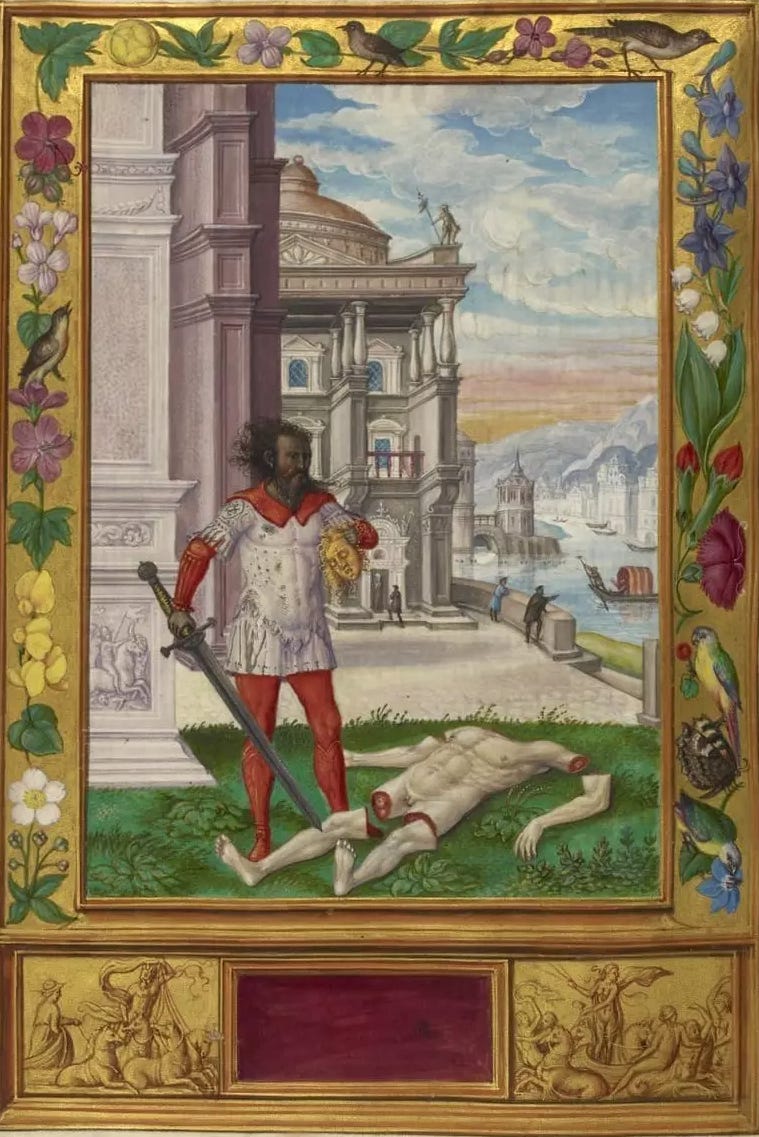
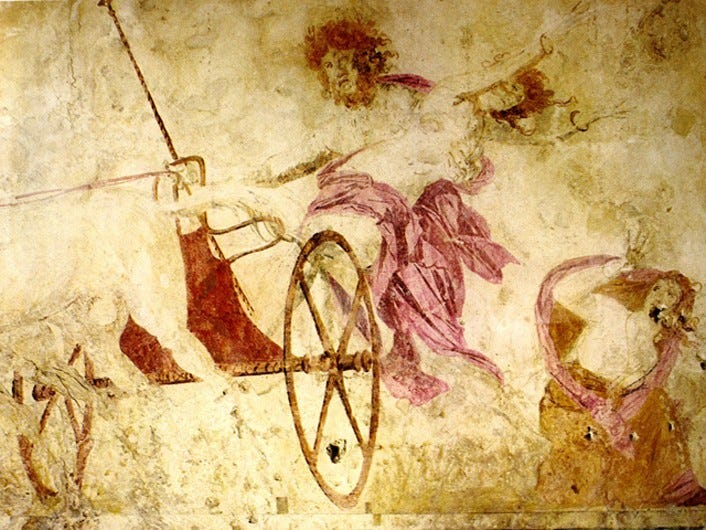

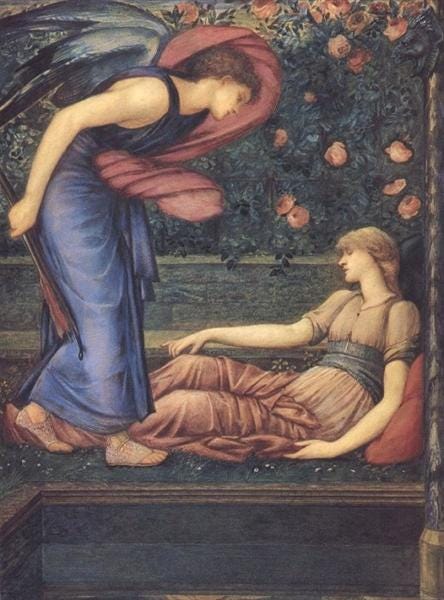
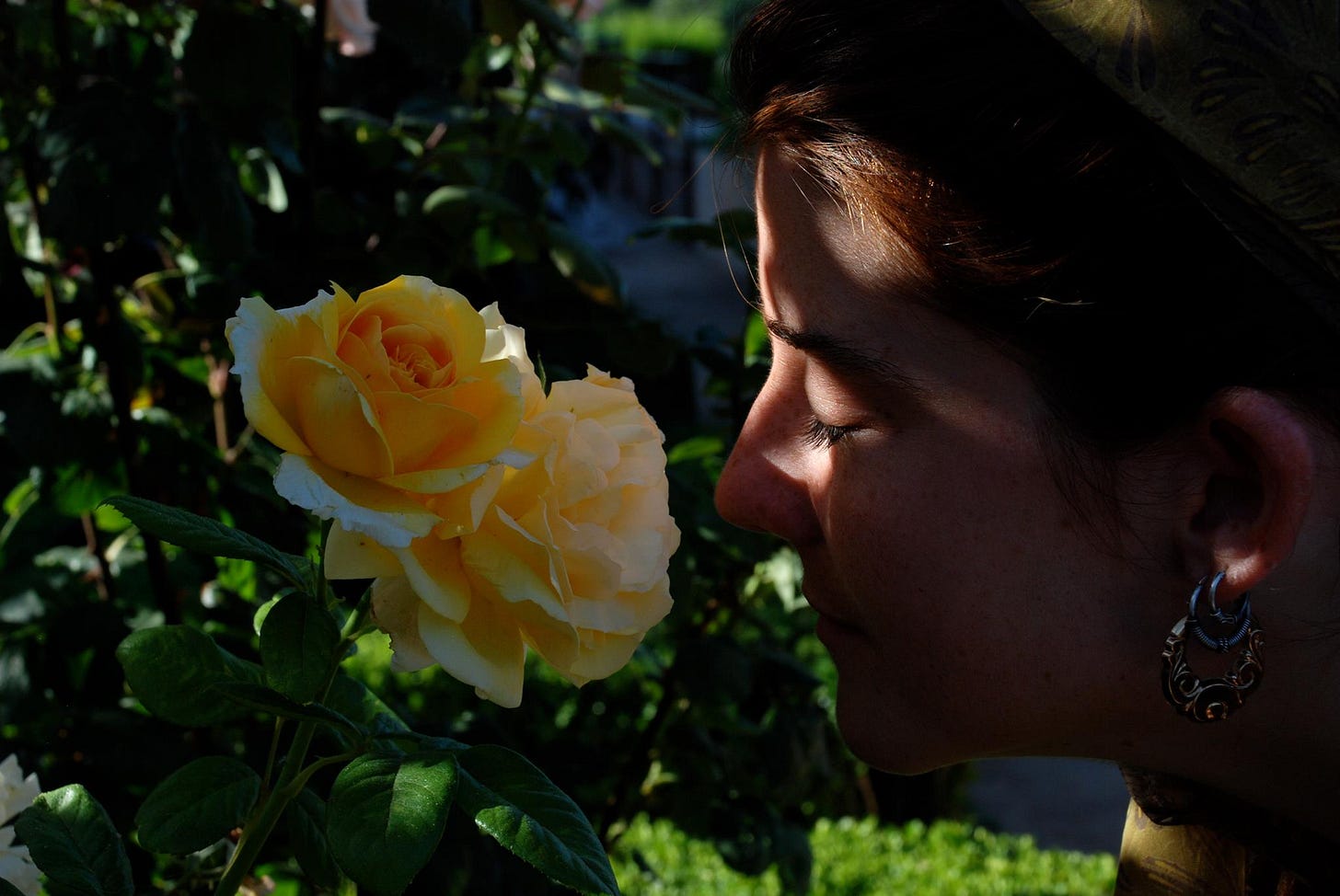
A great read. I have also been thinking about underworlds, having recently written an essay on the book H is for Hawk - perhaps you've heard of it - which chronicles such a journey, arising from bereavement and grief. We each have an underworld within us into which we must descend at certain times in our lives, and hope we can come back as more than what we were before. It does seem to be a place of profound transformation, as you write.